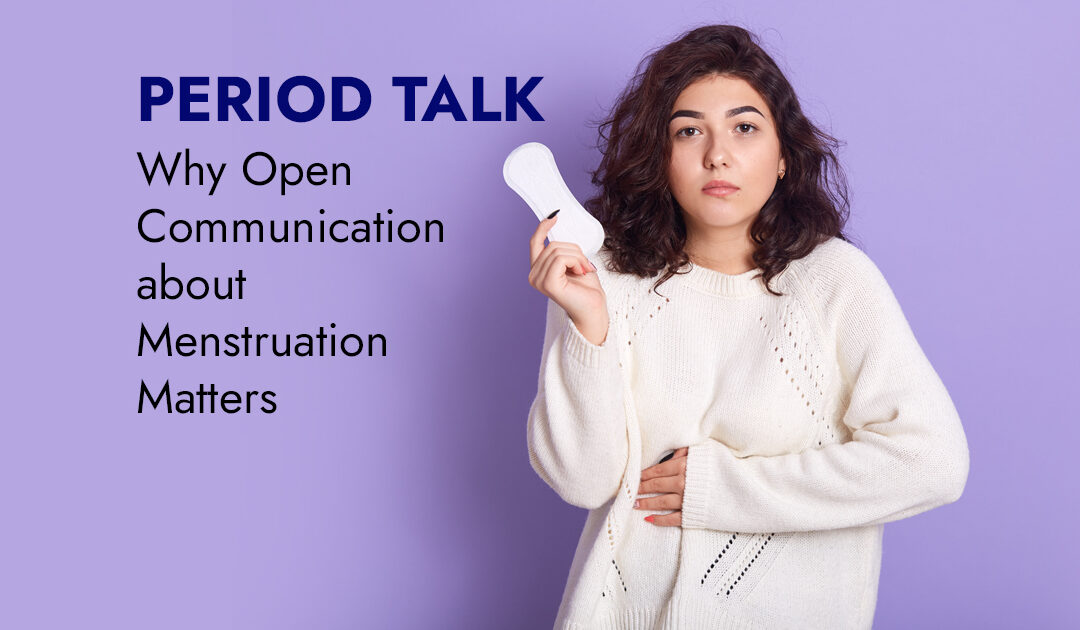The conversation around Menstruation is still a stigma in our country. The idea of discussing periods with their kids might be intimidating for a lot of parents. It could bring back memories of their own childhood fears or awkward sensations. But as both boys and girls navigate puberty and come to a healthy awareness of their bodies, it is imperative that they have open and honest conversations regarding menstruation.
Why it is important to talk about Periods?
To tackle the shame and misinformation around Periods, here are some reasons why open communication is vital:
- Busting Myths: Information spreads by silence. Speaking candidly dispels popular misconceptions and gives kids the power to make wise decisions regarding their health.
- Laying the Groundwork for Future Discussions on Sexual Health and Relationships: Honest communication about periods paves the way for future discussions about healthy sexuality.
- Empowering Girls: Girls feel powerful and in charge when they are aware of their bodies and menstrual cycles. It helps to normalize a normal biological process to have an open discussion about menstruation.
- Developing Self-Confidence: Girls’ confidence can be increased by reducing fear and worry associated with their periods by being aware of what to expect.
- Encouraging Body Literacy: Part of a thorough sex education program is discussing menstruation. It helps kids become more body literate by helping them recognize and value the incredible things their bodies can do.
What are some tips for talking about Periods?
These tips to bring the conversation around Periods up will make it easier for parents to foster communication:
- Provide a welcoming atmosphere where your kids can express any fears or anxieties, and encourage them to ask questions.
- Everyone Should Take Part: This conversation should involve more people than just mothers. Dads, brothers, and other trustworthy individuals can assist normalize menstruation in addition to providing support.
- Prioritize facts over fears: Provide precise details regarding the menstrual cycle, taking into account any physical changes, hormonal swings, and possible symptoms. Provide reassurance to them on any fears they may have regarding pain, leakage, or societal shame.
- Stress that having periods is a normal and healthy aspect of being a woman in order to normalize the process. If it’s comfortable for you, positively describe your personal experiences.
- Start Early: Don’t hold off until your daughter starts menstruating. When they start learning about human anatomy and puberty, which is about age 8 or 9, you can start the topic.
- Select the Appropriate Time: For a candid and open discussion, pick a quiet, comfortable space.
- Employ Age-Appropriate Language: Adjust your explanation to your child’s comprehension level and age. Don’t confuse readers with euphemisms; instead, speak clearly and directly.

